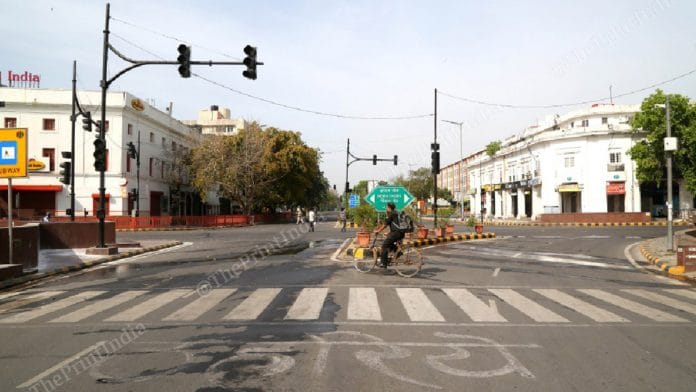Have you ever accidentally stepped into the road while looking at your phone? The consequences can be fatal. Which is why cities around the world are introducing a new type of traffic light to save the lives of pedestrians who are absorbed in browsing or messaging.
The new lights are embedded in the sidewalk at crossings so that, even if you don’t look up, you will still see a bright red line in front of you warning that you are about to step out in front of traffic.
Synchronized with conventional lights at crossings, the LED strips will glow green if it’s safe to cross. They are being called ‘zombie traffic lights’, in reference to the distracted smartphone users they’re aimed at protecting.
To date, the traffic lights have been installed in Sydney, Australia, Seoul, South Korea, Augsburg, Germany, Bodegraven in the Netherlands, Israel’s capital, Tel Aviv and Singapore.
As an alternative to embedded LED strips, some manufacturers have simply added a down-facing light to existing traffic signals that colours the sidewalk to give warning of an impending hazard.
When the lights were installed in Sydney, Australia, Centre for Road Safety Director Bernard Carlon told ABC News: “We have studies to indicate that people who are on mobile phones with their headphones on, listening to music, are four times more likely to do something risky when crossing the road.”
Also read: Odd-even scheme in Delhi will be last weapon against pollution, says Minister Gopal Rai
Watch out for the ‘smombies’
Concern about zombie phone users is not new. The term ‘smombie’ which stands for ‘smartphone zombie’ was voted Youth Word of the Year in Germany in 2015. The term may not have caught on, but the fatal consequences of this sort of behaviour have been steadily mounting.
Experts say that “pedestrian distraction” is a factor in between 12% and 45% of pedestrian road deaths. Around 270,000 pedestrians die on the world’s roads every year, accounting for a fifth of all global road fatalities.
Researchers from the University of Calgary, Canada, who analyzed various global injury studies, said: “Given the ubiquity of smartphones, social media, apps, digital video and streaming music, which has infiltrated most aspects of daily life, distracted walking and street cross will be a road safety issue for the foreseeable future.”
Other road hazards
And it’s not just stepping off the kerb while texting that poses a risk. The Calgary team found data from the United States that showed injuries from walking into lamp posts, tripping and falling increased more than nine-fold between 2004 and 2010.
They say that in the US, two million pedestrian injuries are related to smartphone use and teenagers and children are most at risk. However, they said young people were more likely to wait at a crossing, missing opportunities to cross the street rather than run the risk of injury.
In the Netherlands, the concept has been extended to cyclists with zombie traffic lights embedded in cycle lanes at junctions. They’ve been installed at what the makers say is the worst cycle accident blackspot in Amsterdam in a bid to stop cyclists running red lights.
Douglas Broom, Senior Writer, Formative Content
The article was originally published in the World Economic Forum. You can read it here.
Also read: Study links air pollution to nearly 6 million premature births worldwide in 2019






